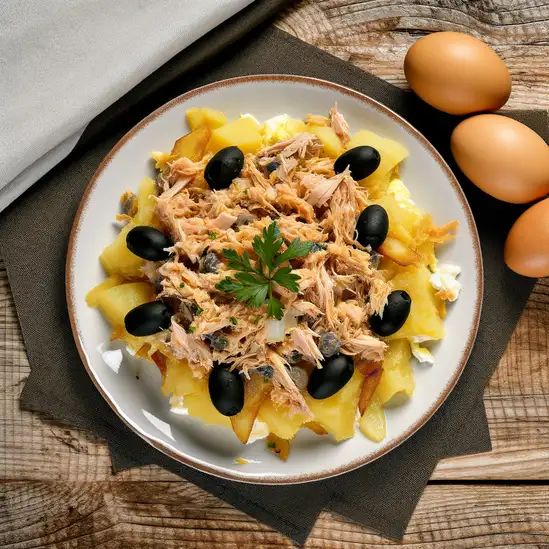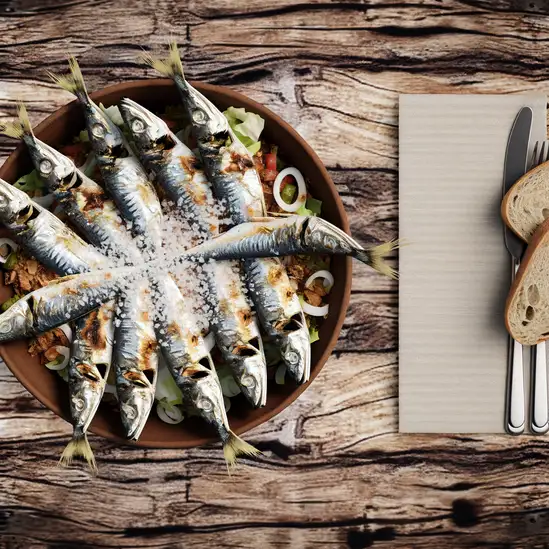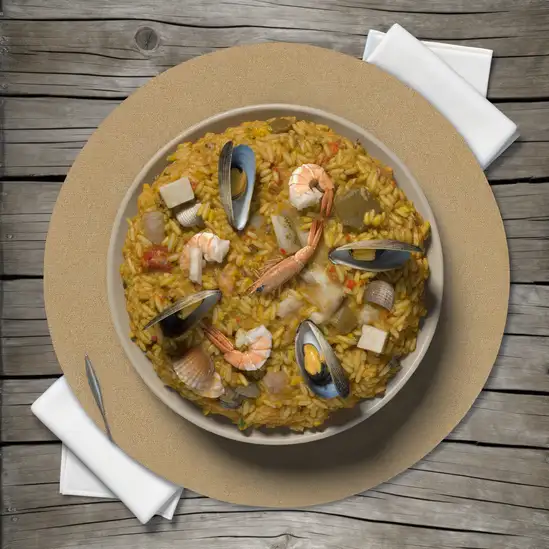



If you ever find yourself craving a place where the sea breeze carries stories and the sun seems to linger just a bit longer,Sesimbra is where you want to be. This charming fishing town feels like a warm embrace—laid-back yet alive,with a rhythm that invites you to slow down and savor every moment. Walking through its narrow streets,you’ll catch the salty tang of the Atlantic mingling with the aroma of fresh grilled fish wafting from the harbor-side restaurants. It’s the kind of place where locals greet you with a smile,and the sound of seagulls blends effortlessly with the gentle crash of waves. Sesimbra’s character is deeply tied to the sea. The colorful boats bobbing in the marina,the fishermen unloading their catch at dawn,and the lively fish markets all paint a picture of a community that lives and breathes the ocean. But it’s not just about the water—the town’s medieval castle perched on the hill offers sweeping views that make you feel like you’re on top of the world,while the nearby beaches invite you to sink your toes into golden sand and watch the sun dip below the horizon. What really makes Sesimbra special is its balance of tradition and ease. You can feast on succulent seafood dishes—imagine tender octopus or freshly caught sea bass—paired with a glass of crisp local wine,then wander to a cozy café for a pastel de nata and a strong coffee. It’s a place that feels genuine,where every corner holds a story,and every moment encourages you to simply be present.
The information on this page is currently being reviewed by Tripkliq and should be used as a guide only
Eng word: Hello
Eng pronunciation: Oh-lah
Local language: Olá
Eng word: Goodbye
Eng pronunciation: Ah-deh-oosh
Local language: Adeus
Eng word: Thank you
Eng pronunciation: Oh-bree-gah-doo
Local language: Obrigado
Eng word: How much
Eng pronunciation: Kwahn-too koos-tah
Local language: Quanto custa
Eng word: Toilet
Eng pronunciation: Bahn-yay-roo
Local language: Banheiro
Eng word: Help me
Eng pronunciation: Ah-zhoo-dee mee
Local language: Ajude-me
Eng word: Yes
Eng pronunciation: Seem
Local language: Sim
Eng word: No
Eng pronunciation: Now
Local language: Não
Eng word: Excuse me
Eng pronunciation: Kohm lee-sen-sah
Local language: Com licença
Sesimbra's history dates back to prehistoric times, with evidence of human settlement in the area as early as the Neolithic period. The region's natural harbor and fertile lands made it an attractive location for early settlers.
During the 8th century, Sesimbra was under Moorish rule, which left a lasting impact on the region's culture and architecture. The Moors built the original castle on the hill, which still stands as a testament to their presence.
In 1165, Sesimbra was recaptured by the Portuguese during the Reconquista. The Sesimbra Castle, perched on a hill overlooking the town, was rebuilt and fortified to protect the region from future invasions.
Sesimbra has a long history as a fishing village, with its maritime heritage dating back to the Middle Ages. The town became known for its skilled fishermen and its role in Portugal's thriving fishing industry.
Built in the 16th century, the Church of Nossa Senhora da Consolação is a beautiful example of Manueline and Baroque architecture. It remains a significant religious and cultural landmark in Sesimbra.
During the Age of Exploration, Sesimbra played a role in Portugal's maritime expeditions. Its strategic location and skilled sailors contributed to the country's global exploration efforts in the 15th and 16th centuries.
Constructed in the 17th century, the Fort of Santiago was built to defend Sesimbra's coastline from pirate attacks. Today, it houses the Maritime Museum of Sesimbra, showcasing the town's rich seafaring history.
In the 20th century, Sesimbra transformed from a quiet fishing village into a popular tourist destination. Its stunning beaches, fresh seafood, and charming atmosphere have attracted visitors from around the world.
Located near Sesimbra, the Cabo Espichel Sanctuary is a historic pilgrimage site. The 18th-century church and surrounding buildings offer breathtaking views of the Atlantic Ocean and a glimpse into Portugal's religious traditions.
In Sesimbra, the most common Power Adaptor is Type C, Type F.



A popular dish made with shredded salted cod, onions, and thinly fried potatoes, bound together with scrambled eggs.

Grilled sardines, typically served during the summer months, often accompanied by bread and salad.

Seafood rice cooked with a mix of shellfish and fish, flavored with tomato and herbs, creating a rich and hearty dish.

A traditional fish stew made with a variety of fresh fish, potatoes, and vegetables, seasoned with herbs and spices.

Fried cuttlefish, often served with a side of rice or salad, is a local specialty that showcases the region's seafood.

Bread stuffed with chorizo sausage, baked until crispy, making for a delicious snack or appetizer.
Lisbon feels like a city that’s been gently kissed by the sun and the sea,where every street corner hums with life and stories. Imagine wandering through narrow,cobbled alleys lined with pastel-colored buildings,their azulejo tiles catching the light just right. The air carries a mix of salty ocean breeze and the rich aroma of freshly baked pastéis de nata—those flaky custard tarts you’ll find in every bakery. There’s a rhythm here,a kind of laid-back energy that invites you to slow down and soak it all in.
You’ll hear the soulful strains of fado music drifting from cozy taverns,a haunting soundtrack that feels like the city’s heartbeat. Locals chat animatedly over glasses of vinho verde or ginjinha,a cherry liqueur that’s as sweet as the conversations. The city’s hills offer stunning views where terracotta rooftops spill down toward the Tagus River,and the sunlight shimmers on the water like a thousand tiny mirrors.
Lisbon’s charm lies in its blend of old and new—ancient trams clatter past sleek street art,and centuries-old castles overlook buzzing markets filled with fresh seafood and vibrant produce. It’s a place where history and modern life dance together effortlessly,inviting you to explore,taste,and feel its unique pulse. Trust me,once you’ve wandered through its neighborhoods and tasted its flavors,Lisbon stays with you long after you leave.
Imagine stepping into a place where the ocean breeze carries the scent of blooming jacarandas and the distant hum of traditional Portuguese guitars fills the air—that’s Funchal for you. This city feels like a warm embrace,perched on the lush,rugged coastline of Madeira. Walking through its cobbled streets,you’ll notice vibrant markets bursting with fresh tropical fruits and the rich aroma of freshly baked bolo do caco bread. The colors here are alive:from the deep blue Atlantic stretching endlessly to the bright bougainvillea cascading down old stone walls.
Funchal’s charm lies in its blend of old-world grace and lively,modern spirit. Locals chat animatedly over glasses of Madeira wine in cozy tavernas,while street art peeks out from unexpected corners,telling stories of the island’s history and culture. The city pulses gently with a relaxed rhythm—you can feel it in the slow,deliberate pace of life and the genuine smiles of the people you meet.
Don’t miss the chance to ride the cable car up to Monte,where the views make your breath catch,or to wander through the botanical gardens,where exotic plants and butterflies create a quiet sanctuary. And when night falls,the harbor lights twinkle like stars,inviting you to savor fresh seafood paired with that sweet,fortified wine Madeira is famous for. Funchal isn’t just a destination; it’s a feeling you carry with you long after you leave.
If you ever find yourself dreaming of a place where the ocean breeze carries the scent of salt and blooming hydrangeas,Ponta Delgada is that kind of spot. It’s the lively heart of São Miguel Island in the Azores,and the moment you step into its cobbled streets,you feel this warm,welcoming pulse—like the city itself is breathing with you. The colorful buildings,with their intricate stonework and bright shutters,seem to tell stories of centuries past,while locals chat animatedly over coffee in cozy cafés that spill out onto sun-dappled squares.
Walking along the marina,you’ll hear the gentle slap of waves against boats and the distant call of seagulls,mingling with the laughter of children playing nearby. The air is fresh,tinged with the promise of adventure,whether you’re about to explore volcanic craters or dive into a plate of freshly caught seafood. Speaking of food,don’t miss trying the local cozido—a stew slow-cooked underground by volcanic heat,rich with flavors that feel like a warm hug on a cool day.
What really makes Ponta Delgada special is its blend of old-world charm and vibrant island life. There’s a relaxed rhythm here,where time slows just enough for you to savor a glass of local wine while watching the sun dip behind the hills. It’s a place that invites you to linger,to explore,and to fall a little in love with the simple,beautiful moments that make travel unforgettable.
Imagine stepping into a city where every corner hums with a quiet,soulful energy—that’s Porto. It’s a place where the old world meets a lively,modern pulse,wrapped in the warm glow of terracotta rooftops and the shimmering Douro River. Walking through its narrow,cobbled streets,you’ll catch the scent of freshly baked pastéis de nata mingling with the salty breeze from the Atlantic. The city feels alive but unhurried,like it’s inviting you to slow down and savor each moment.
Porto’s character is deeply rooted in its history,yet it’s effortlessly cool. You’ll find colorful azulejo tiles telling stories on building facades,while locals chat animatedly over glasses of rich,ruby-red port wine in cozy,tucked-away taverns. The sound of Fado music drifts softly from a nearby café,adding a layer of melancholy beauty to the evening air. It’s a city that wears its heart on its sleeve—warm,genuine,and a little bit mysterious.
What really makes Porto stick with you is how it tastes and feels. From the first sip of a perfectly chilled glass of Vinho Verde to the crunch of a francesinha sandwich packed with layers of flavor,the city’s culinary scene is a delicious adventure. And when you climb up to the Dom Luís I Bridge at sunset,watching the city light up like a living painting,you realize Porto isn’t just a place to visit—it’s a place to feel alive.
If you wander into Faro,you’ll immediately feel this laid-back,sun-soaked rhythm that’s both calming and quietly vibrant. It’s the kind of place where the old town’s cobbled streets invite you to slow down,and the scent of salty sea air mingles with the faint aroma of freshly baked pastries from a nearby café. Faro isn’t just a gateway to the Algarve; it’s a charming city with its own soul,where history whispers from every corner and locals greet you with genuine warmth.
Strolling through the city,you’ll notice the delicate play of light on the whitewashed buildings,the colorful tiles telling stories of centuries past. The cathedral’s bell tower offers a peaceful lookout,where you can watch fishing boats drift lazily on the Ria Formosa lagoon. At night,the city softens into a cozy glow,and the hum of conversation spills out from small tavernas where you can savor fresh seafood paired with a glass of crisp Portuguese wine.
What really makes Faro special is its blend of old-world charm and natural beauty. You can lose yourself in the maze of narrow streets,then hop on a boat to explore the nearby islands,feeling the breeze and hearing the gentle splash of waves. It’s a place that invites you to breathe deeply,taste slowly,and soak in moments that feel both timeless and refreshingly real.
Barcelona feels like a vibrant mosaic where every corner pulses with life and color. The moment you step onto its sun-drenched streets,you’re wrapped in a warm Mediterranean embrace—salt in the air,the distant hum of waves mingling with lively chatter from bustling cafés. The city’s energy is contagious,a blend of old-world charm and modern creativity that invites you to slow down and savor each moment.
Wandering through the narrow alleys of the Gothic Quarter,you’ll hear the soft clinking of glasses and the melodic strum of a street guitarist,while the scent of fresh-baked bread and roasting coffee drifts from cozy bakeries. Barcelona’s architecture is like a living art gallery—Gaudí’s whimsical buildings,with their undulating lines and vibrant mosaics,feel almost dreamlike against the bright blue sky. It’s a place where history and imagination dance together.
Food here is a celebration in itself. Imagine biting into a perfectly crispy,golden croqueta or savoring the rich,smoky flavors of a traditional paella,all washed down with a glass of chilled cava. The city’s markets,like La Boqueria,burst with colors and aromas—ripe tomatoes,fresh seafood,and fragrant herbs—that make you want to taste everything.
What makes Barcelona truly special is its spirit:a city that lives passionately,where locals and visitors alike gather to share stories,laughter,and the simple joy of being in a place that feels both timeless and alive. Trust me,once you’ve experienced it,you’ll carry a piece of Barcelona’s magic with you long after you leave.
Scammers may install skimming devices on ATMs to steal card information from tourists withdrawing cash.
Scammers may create fake rental listings online, asking for deposits for properties that do not exist or are not available.
Individuals posing as official tour guides may approach tourists, offering overpriced or low-quality tours with little value.
Some taxi drivers may overcharge tourists by taking longer routes or not using the meter.
Crowded areas, such as beaches, markets, or festivals, may attract pickpockets who target distracted tourists.
Certain restaurants may inflate prices for tourists or add hidden charges to the bill, such as extra bread or appetizers that were not requested.
Vendors may sell fake branded items or low-quality souvenirs at inflated prices, targeting unsuspecting tourists.
Portugal has decriminalized the possession of small amounts of drugs for personal use, including in Sesimbra. However, this does not mean drugs are legal. Possession of drugs may result in a fine, mandatory treatment, or counseling, depending on the circumstances. Selling, trafficking, or possessing large quantities of drugs remains a criminal offense with severe penalties. Tourists should exercise caution and avoid engaging in any drug-related activities.
In Sesimbra, Portugal, smoking is regulated under national Portuguese law. Smoking is prohibited in enclosed public spaces, workplaces, public transport, and certain outdoor areas such as near schools, hospitals, and playgrounds. Designated smoking areas may be available in some establishments, but tourists should look for signage indicating whether smoking is allowed.
Vaping in Sesimbra is subject to similar restrictions as smoking. The use of e-cigarettes is prohibited in enclosed public spaces, workplaces, and public transport. Tourists should also avoid vaping in areas where smoking is banned, as the same rules generally apply.
What are other people saying about Sesimbra?
Recent Social posts about Sesimbra
There is nothing to show you for now.